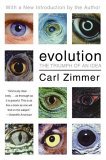I expect it is unlikely that any of the evolution term papers just turned in may have cited from these "biomedical journals" published by Elsevier - but this breaking scandal in the world of scientific publishing highlights the need for good critical evaluation and thinking skills so you can separate the scientific wheat from the drug companies' (and other vested interests') chaff. If you haven't heard about this scandal, it started with the discovery that the big pharma company Merck had paid Elsevier to publish fake journals made to look like they were peer-reviewed! (quick, how many of their journals have you read/cited in the recent past?) Now it turns out, they published at least SIX such "journals":
Scientific publishing giant Elsevier put out a total of six publications between 2000 and 2005 that were sponsored by unnamed pharmaceutical companies and looked like peer reviewed medical journals, but did not disclose sponsorship, the company has admitted.
Elsevier is conducting an "internal review" of its publishing practices after allegations came to light that the company produced a pharmaceutical company-funded publication in the early 2000s without disclosing that the "journal" was corporate sponsored.
The allegations involve the Australasian Journal of Bone and Joint Medicine, a publication paid for by pharmaceutical company Merck that amounted to a compendium of reprinted scientific articles and one-source reviews, most of which presented data favorable to Merck's products. The Scientist obtained two 2003 issues of the journal -- which bore the imprint of Elsevier's Excerpta Medica -- neither of which carried a statement obviating Merck's sponsorship of the publication.
[via Elsevier published 6 fake journals :The Scientist [7th May 2009]]
If some of our students already had trouble telling if a particular journal is peer-reviewed - Elsevier just made it harder. And while students citing something from one of these fake journals for a term paper may not seem like such a big deal, the real problem here is, of course, the intended target readership for these "journals": doctors and other practitioners in the biomedical fields! How much time does your doctor have to look behind the curtain of such publications to decide if a paper about some drug trial is trustworthy? Do medical (and related professional) schools emphasize critical thinking skills enough to safeguard against such fraud? (I have some doubts about that given how many doctors are creationists - but that's another story).
What's even more unfortunate is that this scandal is breaking at a time when the anti-vaccination movement seems to be reaching a peak in the US (and increasing the casualty count of children around the world) - with Oprah jumping on that anti-science bandwagon last week! These purveyors of anti-science woo would probably eat up a story like this as further evidence that all of science is untrustworthy and how you cannot believe anything they say in any scientific journals! Why, oh why did Elsevier have to go and muddy the bathwater so much more when there's already a growing mob straining to tip over the tub, and toss out the baby (science) as well?!













3 comments:
Wow what a great blog it is very interesting thanks for the sharing......... keep moving ahead.........
___________________
Smarry
Email Marketing Solutions
Blogs are so interactive where we get lots of informative on any topics...... nice job keep it up !!
______________________
Buy term papers
if you have no time to learning,buy essays, it will help you in learning and save your time
Post a Comment